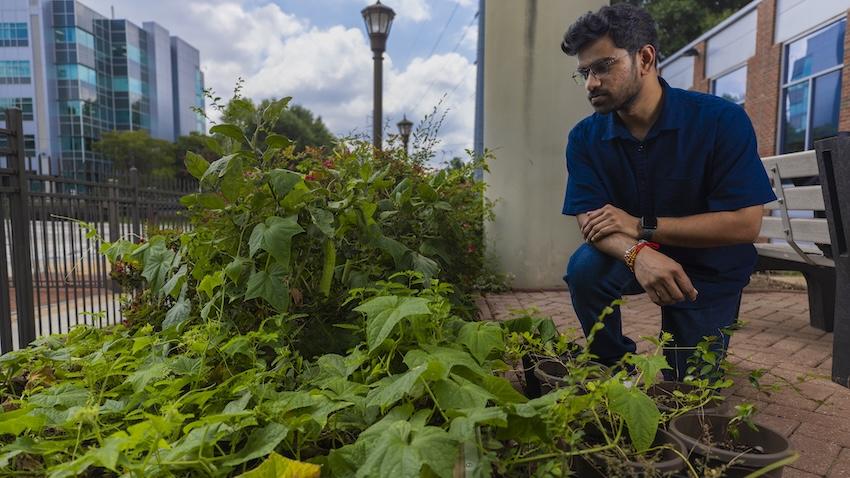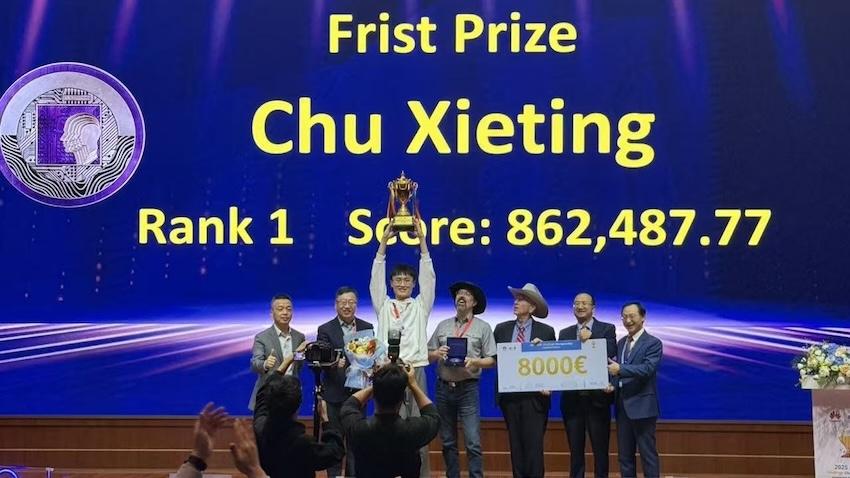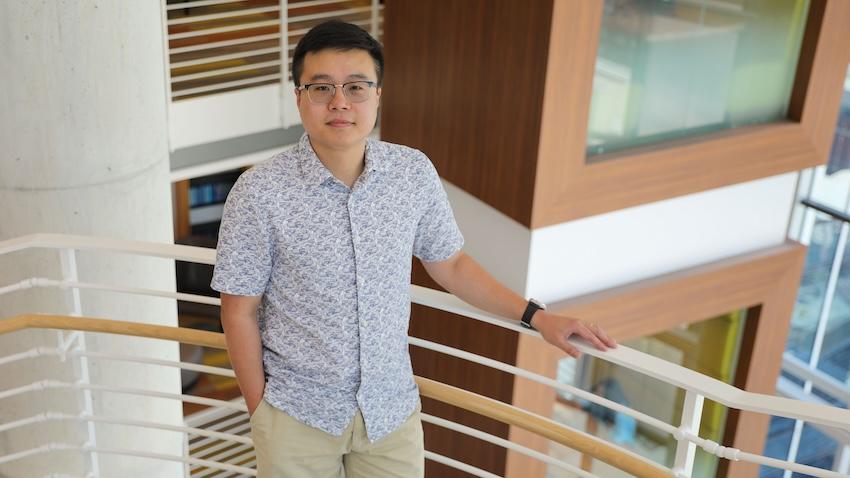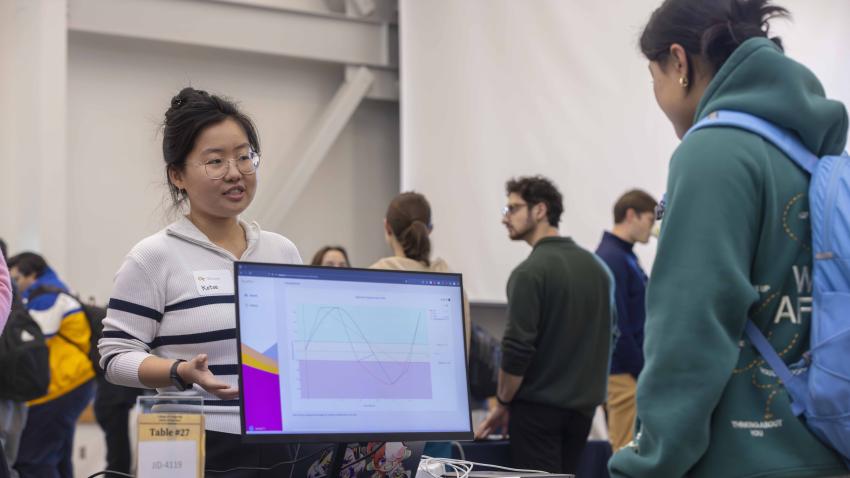
SCI Reimagines Software Engineering Education Through AI, Sustainability, and Peer Mentorship
As artificial intelligence (AI) reshapes industry workflows and sustainability becomes a central concern in computing, the School of Computing Instruction (SCI) is rethinking how software engineering (SE) is taught. At the 2025 ACM Global Computing Education Conference (CompEd) in Botswana, researchers shared studies outlining a vision for more adaptive, responsible, and human-centered computing education.
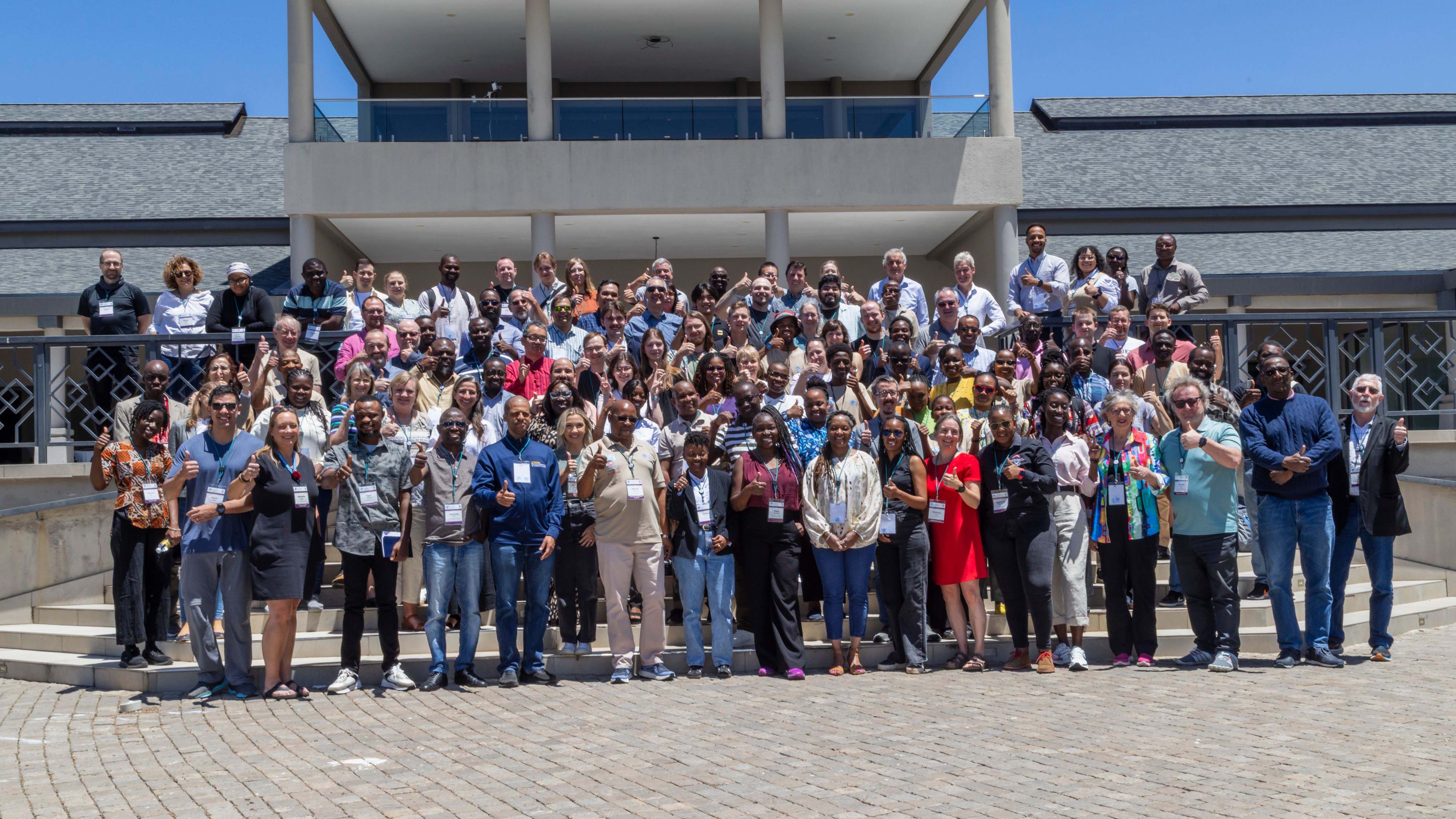
As a co-author of four publications, Associate Dean for Undergraduate Education Olufisayo Omojokun presented SCI-led projects at the conference that explored three key areas: integrating generative AI in advanced curricula, embedding sustainability principles, and fostering scalable peer mentorship to strengthen communication skills.
Reimagining How AI Fits into the Curriculum
In Integrating AI Tools in Advanced Computer Science Curricula: A Case Study of Course Redesign, SCI faculty member Nimisha Roy, computer science major Oleksandr Horielko, and Omojokun describe how two upper-level courses were redesigned to incorporate AI as a tool rather than a shortcut.

The redesigned courses, led by Roy, integrated AI across all phases of software development, from requirements and design to documentation and testing.
“The course starts by grounding students in traditional software development methods to establish a solid base,” Roy said. “Students first create system design artifacts using conventional approaches. They then enhance these designs using AI-driven tools, allowing for a direct comparison between traditional and AI-enhanced processes.”
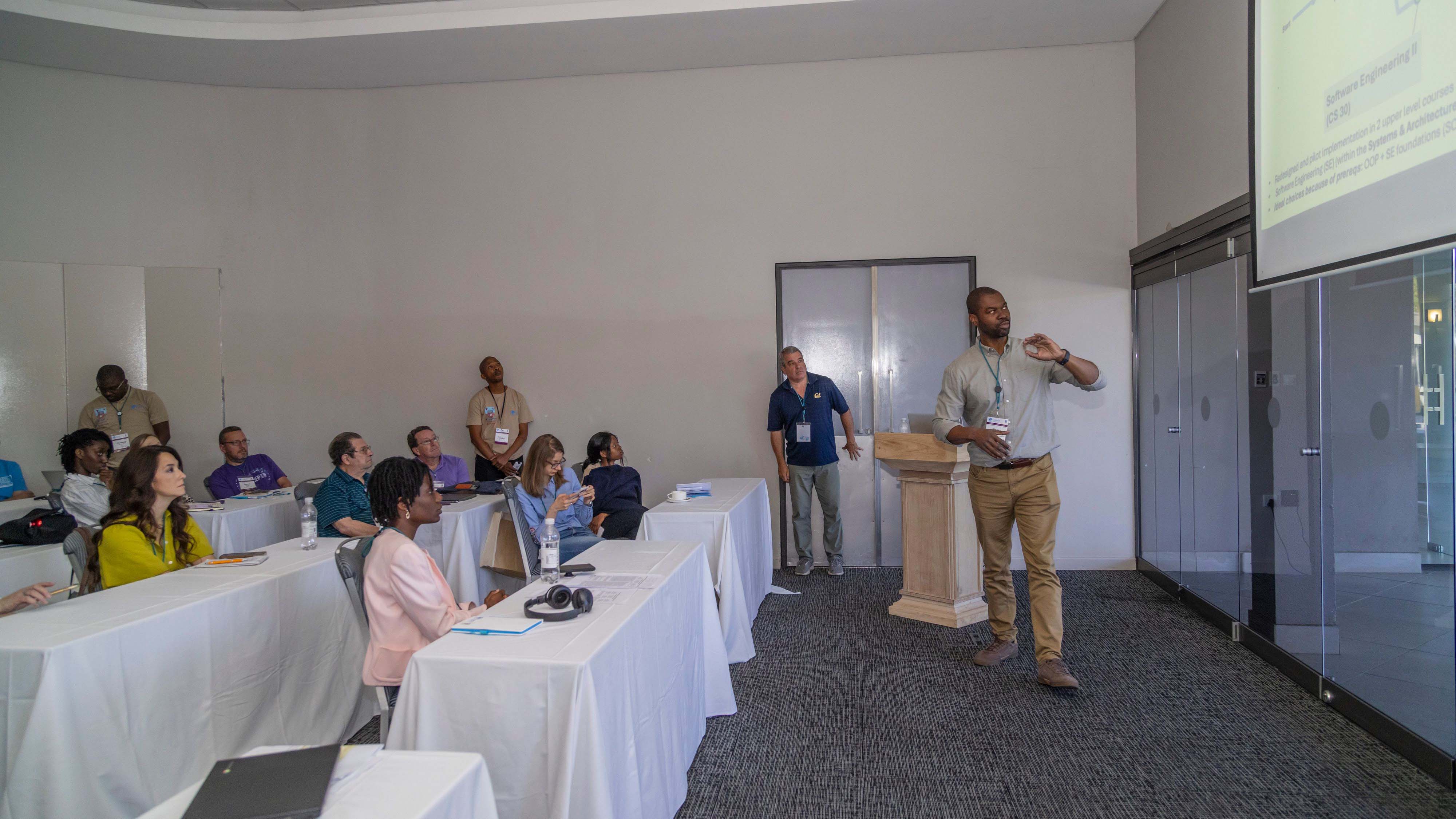
Students refined their code, compared AI-assisted workflows with traditional methods, and reflected on ethical and practical implications. While AI boosted efficiency, about half of AI-generated outputs still required human correction, underscoring the need for critical engagement.
By simulating real-world project constraints, the courses challenged students to evaluate AI not just as a productivity tool but as a collaborator that shapes design choices, documentation, and software quality. The team plans to develop a framework that other institutions can adapt for responsible AI integration.
Teaching Software Engineering with Sustainability in Mind
A companion paper, Integrating Sustainability into Software Engineering Education: A Course Redesign Initiative, compliments the work by exploring sustainability questions as generative AI tools become more mainstream and more energy-intensive. This redesign embeds environmental and social awareness directly into coursework.
Co-authored by Roy, SCI faculty member Rodrigo Borela, and Omojokun, the curriculum draws on the United Nations Sustainable Development Goals (SDGs) to connect software development decisions to broader impacts. Student reflections show that sustainability resonates most when paired with hands-on projects, and treated as an essential design constraint alongside performance and security.
“Both redesign efforts reflect SCI’s commitment to innovation in computing education. By integrating AI tools and sustainability principles into advanced CS courses, we’ve helped students gain skills that align with real industry practices,” Roy said. “Many appreciated learning concepts they could immediately connect to workplace technologies and challenges.”
Scaling Human Connection in the Age of AI
While AI and sustainability define new frontiers, researchers are also focused on the human dimension. In Small @ Scale: Client-Oriented Peer Mentorship for Large Classes in Software Design and Engineering, SCI faculty member Pedro Guillermo Feijóo-García, computer science major Lucas Zangari, and Omojokun introduce a mentorship model that transforms undergraduate teaching assistants (TAs) into project clients and mentors.
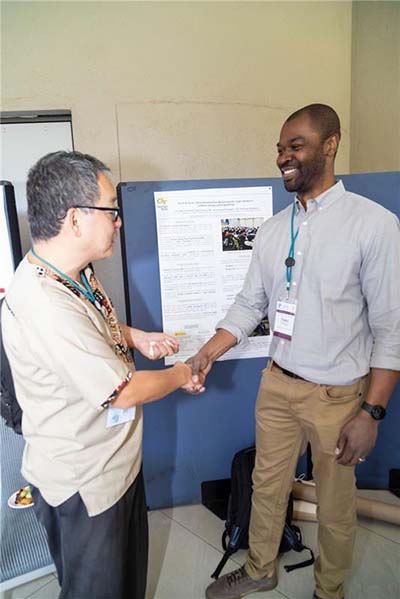
The approach was applied in Feijóo-García’s Objects and Design (CS 2340), a large introductory software engineering course sometimes offered in hybrid formats, where creating meaningful connections between students and instructors is difficult.
Designed for nearly 800 students, the model pairs each project team with a dedicated TA mentor who acts as their “client” throughout the semester. These regular interactions allow students to practice communication, feedback, and iteration skills essential in real-world software work.
“Students were without peer interactions for a while, so there was a reduction in people skills coming out of the pandemic. Having client interaction early on in our curriculum is beneficial because students engage with someone outside themselves and get feedback while iterating on a solution,” Omojokun said.
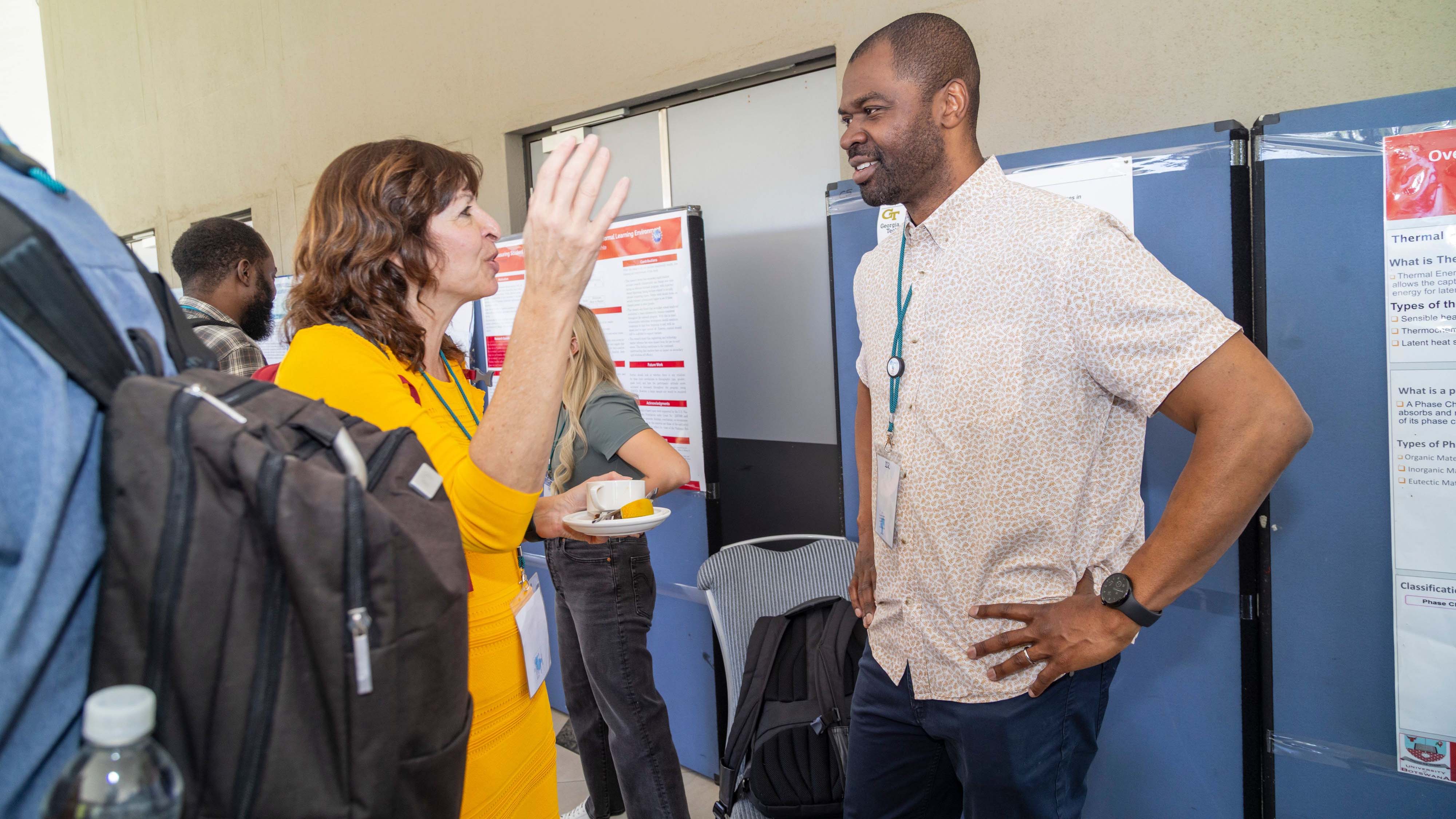
The format benefits both groups of students and makes the class more personal.
“This learner-centered and peer-based approach helps both students and mentors develop essential soft skills such as teamwork, communication, and giving and receiving feedback,” Feijóo-García said.
“It also benefits the TAs themselves. Since the mentorship plan was implemented, TAs have grown from support staff into leaders managing teams and guiding deliverables. They’re gaining experience that prepares them for future roles in management, leadership, and collaboration.”
Building the Future of Responsible Computing Education
Across these initiatives, researchers are designing the next generation of software engineering instruction, balancing automation with ethics, scale with mentorship, and innovation with sustainability.
“We’re still in the early stages of using AI as a problem-solving tool,” Omojokun explained in a panel discussion at the conference. “We also need to develop curricula that help students build and refine their skills at finding problems. It’s in this space - identifying human problems - where humans, we hope, will always be better than AI. The College of Computing is actively exploring how to better instill such skills in our students, starting as early as Freshman Leap.”
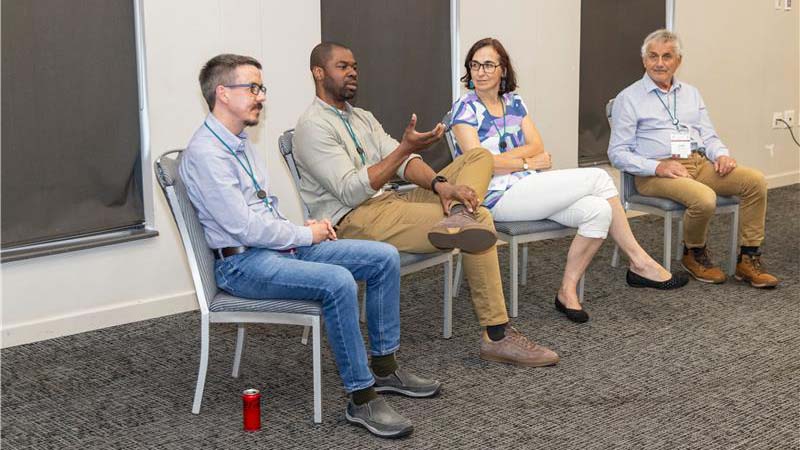
By thoughtfully integrating AI, embedding sustainability principles, and creating meaningful peer mentorship opportunities, the programs aim to equip students not just to write code, but to approach problem-solving in a critical, creative, and responsible manner.
